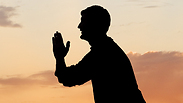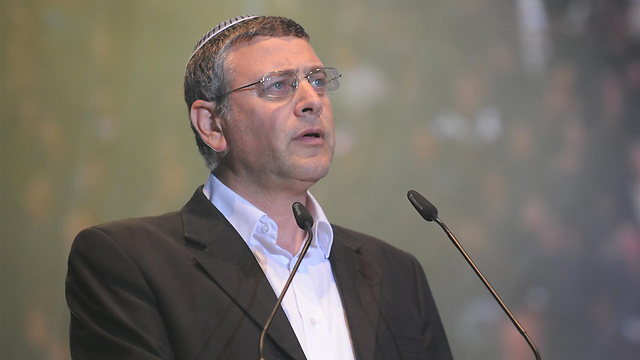
Archive photo
Photo: Shutterstock
Rabbis, educators and community leaders in the religious community published a video on Saturday night in which they apologized before Yom Kippur for the poor treatment of the LGBT community this past Jewish year by their colleagues.
The video is in keeping with Jewish tradition of seeking forgiveness for wrongs committed against one's neighbors during the High Holy Days. Indeed, the video begins by quoting the relevant Talmudic passage, "Yom Kippur atones for transgressions between a person and God, but for a transgression against one's neighbor, Yom Kippur cannot atone, until he appeases his neighbor."
Seven speakers—four men and three women—appear in the project that was initiated by LGBT religious organizations Havruta – Religious Gays, Bat-Kol – Religious Lesbian Organization, K'ratsono – Religious Trans Men and Woman and their Friends, Religious LGBT Community,and Shoval — Everything Was Created in His Glory. Whilst all the speakers are identified as liberal religious persons who advocate for including those with various sexual orientations and gender identities in their communities, this clip still constitutes an exceptional step on their half with rabbis and other religious leaders figuratively beating their breasts and asking for forgiveness.
Rabbi Dr. Benny Lau is the community of the Ramban synagogue in Jerusalem and the head of the Human Rights and Judaism in Action Project at the Israel Democracy Institute. One of the leading figures in Modern Orthodoxy, he has criticized in the past the speech by Rabbi Yigal Levinstein that deemed gay people "perverts." However, in the spirit of the High Holy Days, Lau took responsibility for the pronouncements of the head of the Bnei David pre-army preparatory yeshiva. "I'm commanded to perform a self-examination, not to examine my neighbor," he said.
The cousin of Ashkenazi Chief Rabbi David Lau, he asked, "How many people walk among us—isolated people, people who are seeking contact, different people, people with wills, people with identities, LGBT people?
"You check yourself, ask yourself, 'Did you see? Did you see everyone among you? Did you see the people who aren't you?' I pray that in the coming year, we'll want to please we'll see, we'll be inclusive people. We'll open our ranks."
Dr. Hannah Kehat, one of the leading pioneers in the feminist movement in the religious community, added, "Over the last year, unfortunately, some of our rabbis went off the proper path, from the path of the Torah, hurt and insulted people for who they are, and especially the LGBT community. I really hope. I wish, that next year, all of us will remember that the greatest and most important rule in the Torah is to 'love your neighbor as your קשבself.' That is the whole Torah; the rest is the explanation."
Rebbetzin (a rabbi's wife) Dr. Chana Friedman, one of the founders of the liberal Orthodox Yachad Tel Aviv Community, said, "The Holy One, blessed be he, can forgive us for our sins against him, but with all his greatness and abilities, he has no authority to make disappear the pain and injuries and sins that we have committed against other people. It doesn't help even if those injuries and sins were done in the name of God."
Rabbi Meir Nehorai, chairman of the rabbinical organization Beit Hillel, which last year published an unprecedented position paper on the treatment of the LGBT community, said, "It's the appropriate time to ask for forgiveness with all our hearts so that we can go into Yom Kippur in perfect purity."
Rebbetzin Malka Puterkovsky added, "The foundation needs to be a lack of judgment—also for people with same-sex orientations, LGBT people, gays, lesbians. Attentiveness to the specialness of a person, regardless of whom, can make us wiser, can enrich us, and principally provide another viewpoint to the human soul."
Ilay Ofran, rabbi of Kvutzat Yavne, summarized, "The goal, the goal of our life, is to build a community that has a place. That has a place for the same and the different. If there are entire groups that can't aren't finding their place, then not only are we sinning between man and his fellow—we're also sinning between man and place."

















